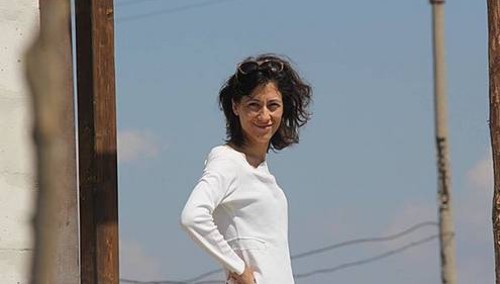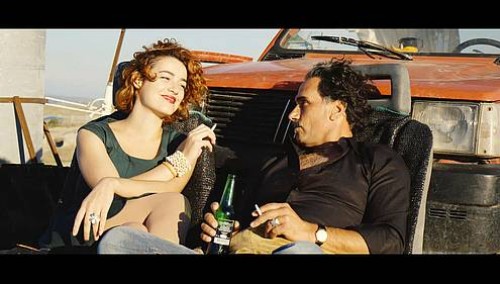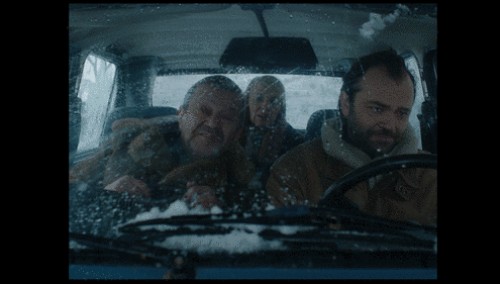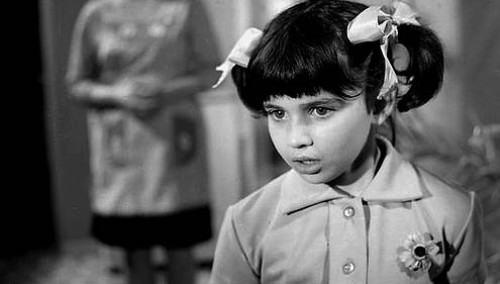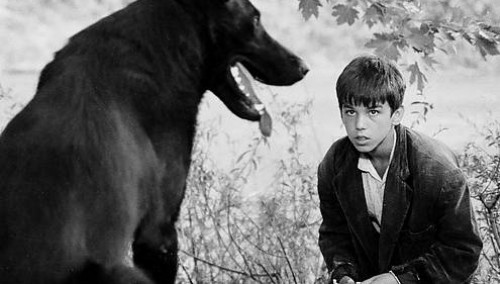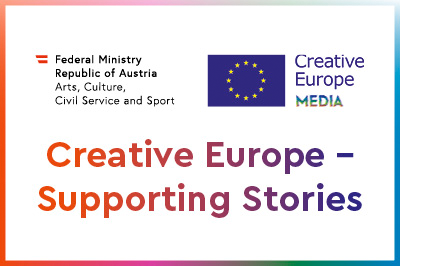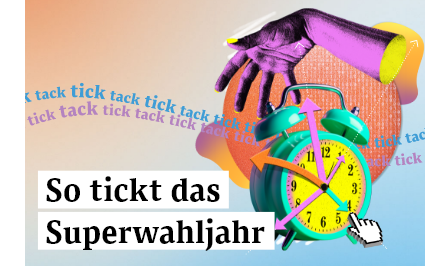Spotlight 2019: Iris Elezi
Iris Elezi is a real renaissance woman of contemporary European film culture. She studied film theory and criticism, anthropology, Gender Studies, and film production. She is an active film conservator, and an experienced teacher, producer, author, director, and by far one of the most passionate “emissaries” of Albanian cinema abroad.
(Jurij Meden, Austrian Film Museum)
Following the award winning director Yeşim Ustaoğlu from Turkey, and the successful producer Ada Solomon from Romania, CROSSING EUROPE is putting the focus of the program section SPOTLIGHT on a leading female figure in European cinema for the third time. This year the choice fell on the highly active Iris Elezi from Albania, who had already personally introduced her first feature length film BOTA (IT/AL/Kosovo 2014) to the festival audience in Linz in 2015.
After studying in the USA (a.o at the TISCH School of Arts, NYU), Iris Elezi returned to Albania, where she dedicated herself to the Albanian cinematic heritage and its conservation next to her work as a director, producer, screen writer, and lecturer. Twenty-seven years after the fall of the isolated Stalinist dictatorship in Albania, it is still the case that little is known about the cinema from this southern European country. As a co-founder of the initiative The Albanian Cinema Project, Iris Elezi is a key figure in conserving the national cinematic heritage not only in a material but also in an ideological sense. In this context, they organize e.g. film screenings, in order to sensitize the public to the filmmaking from the time of the dictatorship, that is understandably rejected by large parts of the population. Iris Elezi describes her efforts for a critical revaluation of the Albanian cinematic heritage, that without a doubt also plays a part in the education on cultural identity, as such: “We must free ourselves from this collective amnesia.”
The film selection for her Carte Blanche is split between a historic part and current productions. Next to three feature films from the recommended director Xhanfise Keko from the 1970s, the historic program also includes a comedy blockbuster from the post-Hoxha era by one of the central figures of Albanian cinema, Dhimiter Anagnosti. The “current” program section offers an ideal introduction into the Albanian cinematic universe with the documentary by Mark Cousins that is full of facts, yet has hardly been received by an international audience. The section is complemented by two further feature films, next to BOTA by Iris Elezi, the very recent and highly successful production that was shown at multiple international festivals, NËNTOR I FTOHTË by Ismet Sijarina will be shown.
Film Overview – Carte Blanche Iris Elezi
PERRALLE NGA E KALUARA / A TALE FROM THE PAST (AL 1987), D: Dhimiter Anagnosti, 86 min. – Fiction
BOTA (AL/IT/KO 2014), D: Iris Elezi and Thomas Logoreci, 100 min. – Fiction
HERE BE DRAGONS (GB 2013), D: Mark Cousins, 79 min. – Documentary
NËNTOR I FTOHTË / COLD NOVEMBER (KO/AL/MK 2018), D: Ismet Sijarina, 93 min. – Fiction
MIMOZA LLASTICA / SPOILED MIMOZA (AL 1973), D: Xhanfise Keko, 38 min. – Fiction
TOMKA DHE SHOKËT E TIJ / TOMKA AND HIS FRIENDS (AL 1977), D: Xhanfise Keko, 74 min. – Fiction
KUR PO XHIROHEJ NJË FILM / WHEN SHOOTING A FILM (AL 1981), D: Xhanfise Keko, 61 min. – Fiction
Film Overview – Program Xhanfise Keko at the Austrian Film Museum (1 & 2 May)
HERE BE DRAGONS (GB 2013), D: Mark Cousins, 79 min. – Documentary
MIMOZA LLASTICA / SPOILED MIMOZA (AL 1973), D: Xhanfise Keko, 38 min. – Fiction
QYTETI MË I RI NË BOTË / THE NEWEST CITY IN THE WORLD (AL 1974), D: Xhanfise Keko, 52 min. – Fiction
TOMKA DHE SHOKËT E TIJ / TOMKA AND HIS FRIENDS (AL 1977), D: Xhanfise Keko, 74 min. – Fiction
KUR PO XHIROHEJ NJË FILM / WHEN SHOOTING A FILM (AL 1981), D: Xhanfise Keko, 61 min. – Fiction
// Iris Elezi will be personally present at the film screenings in Linz as well as in Vienna, and there will also be a talk as part of CROSSING EUROPE. - The Spotlight 2019 will be held in cooperation with the Austrian Film Museum. //

